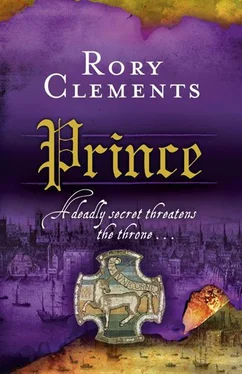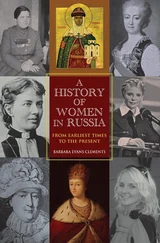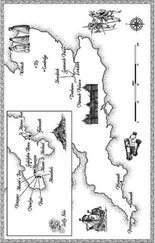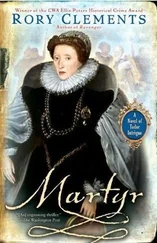Rory Clements - Prince
Здесь есть возможность читать онлайн «Rory Clements - Prince» весь текст электронной книги совершенно бесплатно (целиком полную версию без сокращений). В некоторых случаях можно слушать аудио, скачать через торрент в формате fb2 и присутствует краткое содержание. Жанр: Исторический детектив, на английском языке. Описание произведения, (предисловие) а так же отзывы посетителей доступны на портале библиотеки ЛибКат.
- Название:Prince
- Автор:
- Жанр:
- Год:неизвестен
- ISBN:нет данных
- Рейтинг книги:5 / 5. Голосов: 1
-
Избранное:Добавить в избранное
- Отзывы:
-
Ваша оценка:
- 100
- 1
- 2
- 3
- 4
- 5
Prince: краткое содержание, описание и аннотация
Предлагаем к чтению аннотацию, описание, краткое содержание или предисловие (зависит от того, что написал сам автор книги «Prince»). Если вы не нашли необходимую информацию о книге — напишите в комментариях, мы постараемся отыскать её.
Prince — читать онлайн бесплатно полную книгу (весь текст) целиком
Ниже представлен текст книги, разбитый по страницам. Система сохранения места последней прочитанной страницы, позволяет с удобством читать онлайн бесплатно книгу «Prince», без необходимости каждый раз заново искать на чём Вы остановились. Поставьте закладку, и сможете в любой момент перейти на страницу, на которой закончили чтение.
Интервал:
Закладка:
‘I shall speak from the heart, Mr Laveroke.’
‘Here, then, by this cheese stall. I shall set the clock now.’ Laveroke climbed down from the front of the wagon and went around to the back. Hidden between two of the six barrels was a curious bronze and steel mechanism of gears and balances. He released the brake and set it in motion. In two minutes’ time, if all went as planned, a shard of flint would fall against a plate of steel and send a shower of sparks into the pan of powder protruding from one of the kegs. ‘Let us now walk away at a brisk pace. If we stand well back, we can enjoy the spectacle.’
John Shakespeare joined Ana Cabral and the Vidame de Chartres outside the postern door, close to the stables. Grooms were there with three horses, ready saddled. They were well-conformed animals, with quarters built for speed. Shakespeare noticed a pair of guards in the shadows of nearby trees.
‘Mr Shakespeare, allow me to introduce you to Pregent de la Fin, Vidame de Chartres,’ Ana said. ‘Perhaps you know his father, Jean de la Fin, France’s ambassador here in England.’
‘Of course.’ Shakespeare bowed to the man and noted that he had extended a slender hand to be kissed. Shakespeare ignored it. ‘I have, indeed met your father, Monsieur le Vidame. It is an honour to meet you.’
‘Do you race horses, Mr Shakespeare?’
‘Not since boyhood.’
‘But you will race against me, yes?’
Why not? If that was what they wanted. Shakespeare knew himself to be a good enough rider. If the horse was up to the task, so was he. And there was nothing else to do while he waited for Perez to wake from his opium slumber.
The vidame was in his thirties. He was exceedingly slim but, perhaps, strong, too. His dark hair was long, hanging loose about his shoulders. He wore doublet and hose of brilliant yellow, green and gold, beneath a green velvet hat. Shakespeare would have called him pretty rather than handsome, and yet he was not effeminate; too much steeliness in him for that.
‘Let us ride, then. You see the church? It is two miles, Mr Shakespeare. The first to the large yew tree beside it. You choose: the black filly or the bay colt. Your best sword for mine — and mine has a hundred gemstones in its hilt. Ana, ride on ahead. You are the judge in this.’
Shakespeare examined the two animals. They both looked fine specimens, but the filly seemed to have a more intelligent eye. He gestured with a tilt of his chin. ‘I will have her.’
‘A fine choice. She is the better animal.’
With the help of a groom, Shakespeare mounted the black filly. She was nervy and had clearly never pulled a plough or wagon. Ana was trotting away into the distance.
‘I will race you for the honour, Monsieur le Vidame, not the sword,’ Shakespeare said. ‘For all that I know,’ he added disingenuously, ‘this is a farm nag.’
‘Does she look like a farm nag? You are sitting astride a pure-bred Barb, sir, bred in Rome and brought with me from the finest stables in France. A three-year-old Barbary colt. That is a racehorse, not a nag. You may keep your English hobbies and your Spanish jennets. The Barb wins every time. I believe the Queen has a fine hobby named Great Henry. At the summer races, we will take pleasure in beating her with our filly.’
‘In the meantime, we ride for honour.’
‘No, there must be a prize. If not a sword, let us race for a favour.’
Shakespeare was not happy. ‘A favour it is,’ he said reluctantly. ‘But a legal favour, and of small value. Dona Ana to be arbiter…’
‘Very well. Now ride. I give you a ten-yard start.’
The vidame clapped his hands, Shakespeare shook the reins, and the horse set off like a ball from an arquebus. This was, indeed, a racehorse. Catching his breath, he settled down and gripped his thighs against the muscled barrel of the filly.
As the horse thundered across the parkland he sensed she was going too fast. This was no half-mile dash; she would never stay two miles at such a speed. He turned and saw that the Frenchman was a hundred yards behind him and losing ground. The vidame’s pace was far more sensible. Gently, Shakespeare shortened the reins and brought her on the bit. The young filly fought the restraint, her head high and struggling to be let loose, but Shakespeare held her hard.
He crouched low in the saddle, as he had seen riders do at the royal races, almost lying along the horse’s withers, his face close to her flying mane. He could hear the sound of the vidame close behind now; that was where he wanted him.
Shakespeare reckoned they had gone the best part of a mile. Time to keep his nerve. Let the vidame pass, go on a few yards if he wished. Beyond some cottages and to the left of a copse, they came to an incline. The vidame was with him. He was still hardly moving a muscle on his bay colt. Yet Shakespeare could feel that his own mount had plenty left to give. The race was on.
They came to a dip. The filly faltered on the downhill, as if untrained for inclines, but quickly regained her legs. The church was out of sight now. With a kick of his spurs the vidame shot his mount ahead as they came to the rise. Shakespeare had been caught unawares. The vidame knew this territory; this was no time to lose position. Within seconds the bay colt was five yards ahead. They came to the crest of the rise. The church was a furlong away and they were riding a well-trodden path.
Up ahead, Shakespeare saw Ana reining in beside a tree. He gave his filly the bridle, cracked her flank with his whip-stock and kicked hard with his unspurred heels. The horse surged forwards. Shakespeare had never felt such power beneath him. In a few strides he was once more up to the tail of the bay colt and closing. But the colt wasn’t stopping. The filly inched closer and closer. Half a length now, a neck. Then they were past the tree.
The vidame had won, by no more than the length of his colt’s powerful neck. Shakespeare cursed himself. His horse could have won, should have won, given a more clever ride. Slowly, he pulled up, then wheeled his dripping mount and trotted back to the yew. Ana was grinning at him.
‘You rode a poor race, Mr Shakespeare. The filly is ten lengths better than the colt, a different class of animal. You should have slapped her earlier. What filly does not lengthen her stride when hit with a crop?’
‘I confess it — the colt had the better rider. On the day.’
‘Do not berate yourself. The vidame knows this path well. He knows both the horses. I think the filly can beat any horse in England in a fair race. We call her Conquistadora.’
‘I am surprised you entrusted her to me.’
‘Oh, I trust you, Mr Shakespeare. I know more about you than you might imagine.’
The vidame was now with them. ‘Well, well, Mr Shakespeare. I do believe you owe me a favour. What shall it be?’
‘You tell me, Monsieur le Vidame.’
Boltfoot Cooper parted company with Sarjent at Three Mills. Sarjent had insisted on going to fetch pursuivants to take over the mill, but Boltfoot would have none of it.
‘I will stay here with Mr Knagg and ensure he does not leave. You can take him in when you return with your men.’
Sarjent seemed reluctant to go under such conditions but quickly realised he had no option. Boltfoot watched him ride off and felt only relief; he wished to move on alone.
‘Well, Mr Knagg,’ Boltfoot had said before leaving the powdermill. ‘It appears you are soon to have a visit from the pursuivants.’
‘This is an outrage,’ Knagg had spluttered. ‘You know there is no evidence of wrong-dealing here. No powder is missing and nor has any man brought in a tinderbox. Sarjent is a liar, a custrel, a bloody fabricator of evidence — and worse.’
Читать дальшеИнтервал:
Закладка:
Похожие книги на «Prince»
Представляем Вашему вниманию похожие книги на «Prince» списком для выбора. Мы отобрали схожую по названию и смыслу литературу в надежде предоставить читателям больше вариантов отыскать новые, интересные, ещё непрочитанные произведения.
Обсуждение, отзывы о книге «Prince» и просто собственные мнения читателей. Оставьте ваши комментарии, напишите, что Вы думаете о произведении, его смысле или главных героях. Укажите что конкретно понравилось, а что нет, и почему Вы так считаете.












